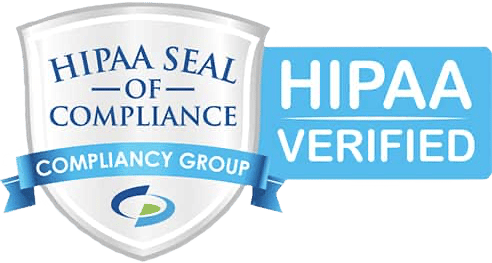Emails have become a lucrative way for hackers to make a quick buck. After all, these essential communication platforms are an integral part of every organization. Email can make or break small businesses since they are the most vulnerable when it comes to cyberattacks. For example, SMB’s were targets of 58% of all data breaches. To make matters worse, two-thirds of small organizations say they have suffered a cyberattack. The problem that arises is that these businesses believe hackers have bigger fish to fry, so they skimp on corporate email security, leaving themselves as more vulnerable and worthwhile targets for scammers. You need an effective email security strategy to defend against hackers, spammers and cyber criminals..
Utilizing a corporate email security strategy can go a long way to solving the pervading data protection problem. This strategy should take a multi-faceted approach to protect email infrastructure as well as those who use these services.
Imagine a business not having any protections in place when an employee clicks on a malicious attachment in a message that infects the network with malware. With the proper end-user education and policies for them to follow, the outcome would have been much different –even without the use of technologies and applications that would prevent that email from ever reaching the staffer.
When developing the right corporate email security strategy for your company, be sure to consider these enterprise email security best practices.
1. Develop Policies That Align with Email Security Best Practices
An email security policy is a baseline for your clients’ business defenses. It should include information their employees can use, starting with the basics — how corporate communications can and cannot be used. Staff should also have access to protocols to avoid attacks as well as information on when and how to report potential incidents.
Be sure also to include general guidelines, such as “never click on attachments from an unknown sender” and “ignore financial offers.”
2. Adopt Effective Email Protection Tools
A robust set of email protection tools will successfully protect businesses as well as minimize the amount of guessing for employees. Technical services such as anti-phishing, filtering, and email encryption are a must.
Use an email filter that quarantines suspect email and provides daily email security reports so the IT staff is kept up to date with current threats. Go beyond filtering spam and viruses and manage outbound messages with self-defined parameters to stop damaging or sensitive data from being leaked.
Round off these technologies with an email encryption application. Sometimes sensitive information needs to be sent via email — this is where an encoded message can prove beneficial.
3. Implement Mobile Protection
The business environment is changing, with many employees working at least some of the time remotely. Whether staff is accessing email via a laptop, tablet, or phone, if they are not using the company network or a VPN, trouble will arise. That’s why businesses should use cloud-based email security to protect against those threats.
4. Educate Users about Business Email Protection
Applications only go so far. Inevitably, there will come a time when employees are the last line of defense. Recurring education about business email protection allows staffers to safeguard themselves against attacks.
When it comes to preventing human error, there are several avenues management can take — from forming general guidelines to using a white hat phishing attack. The key is to reinforce that message repeatedly with ongoing phishing and awareness training activities.
One of the many topics organizations should be sure to address is the current threats employees face. Analyze the threat landscape; who will they target and what information do they want? When staff is already armed with this information, they will be much more likely to catch it.
5. Review and Update Email Protection Tools Periodically
Cyber threats are ever-changing, and hackers are becoming increasingly creative.
Hackers often begin with email as one of their primary strategies to break in to a company’s network. Here, we further explain some of the current phishing attacks and how to select the best phishing solution for your users.
With a constantly evolving landscape, businesses need to review the products in use, ensure all updates have been made, and consider adopting more advanced corporate email security programs and services.
Rise Above the Rest with the Best Email Protection Tools
Because email is such an integral part of every business, it only makes sense that businesses look to their IT partners to make it as secure as possible. If your clients are not implementing these strategies or using the most current and robust email protection tools, the networks you are responsible for could be at risk.
Cybersecurity serves as a great consulting opportunity and a differentiator for MSPs. While other providers only want to sell equipment and hardware, your firm can prosper by taking a deeper look at what prospective clients need and offering a variety of strategies that will address those objectives.

